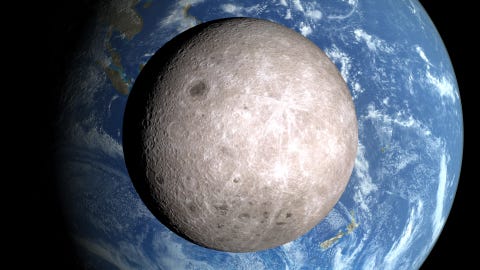
A TECHNOLOGICAL REPORT AND POLITICAL ANALYSIS BROUGHT TO YOU BY HELIOS RUEHLS, INC.
"The battle over the open versus the closed seas likely parallels any existing order in space. One of the first precepts of maritime international law is that the sea beyond territorial waters is a common highway open to all on "innocent passage". Where territorial waters enclose or infringe on international straits and passages linking the seas, an international servitude exists, giving ships of all nations a right of innocent passage. Adjacent coastal states also have various exclusive rights by way of the Outer Continental Shelf Convention and the most recent "Law of the Sea Convention"to regulate certain fisheries and exploit bottom resources, especially mineral resources out to about 200 miles from shore varying a bit with circumstances. But beyond 12 miles from shore all ships have the right of innocent passage. Beyond the various Exclusive Economic Zones (EEZs) the sea surface, the water column, and the bottom and subsurface bottom are legally in the international "commons". This concept of "freedom of the seas" was not adopted automatically and is still fought by some nations today. Wars were fought over the issue and may be fought again. However the logic of freedom of the seas seems settled and irrefutable. The commerce between nations is carried on the seas. Without freedom of the seas the global economy is impossible to maintain. The vast seas which once separated cultures now unite them. It is likely that the same logic was long ago applied in space if older space faring cultures exists, especially if there are numbers of them. The likely first rule of space is that it is regarded as a common highway open to all.
The Second likely rule of space is similar to the modern maritime concept of the Exclusive Economic Zone (EEZ) and some ancient Polynesian concepts concerning uninhabited islands. Many , if not most of the islands of Polynesia are simply too small, too low lying, or lack sources of fresh water and were labeled by the European explorers as "uninhabited". But actually these out lying islands with no permanent human inhabitants were in fact owned, tended,and were important food sources for Polynesian societies living sometimes several days sail away on larger fresh water endowed islands. The people of the larger permanently inhabited islands would visit the out lying islands to harvest coconuts, fish including tending saltwater ponds created as a form of aquaculture, and plant, tend, and harvest other crops. The truth was that the larger islands could not support their human populations without these additional crop lands and fishing grounds. One of the reasons we will push out into our solar system is that our ever expanding population on this planet needs the additional resources. So a probable second rule of any interstellar legal regime is that in any planetary system with intelligent life on any one planet, the inhabitants of that planet have the exclusive legal right to develop economically the out lying uninhabited planets. Apparently, if we give credence to astronaut reported UFO sightings, the right of innocent passage for all space faring civilizations remains.
A third probably sure bet is that in approaching anything like the port towns that Columbus saw on the Mayan coast, there will be a regular routine and procedures for formal entry with due notice to the authorities. If we ever find anything looking remotely like a space port we'd better hang well back and attempt to establish contact before attempting to enter or even draw close.. "
This latest Chinese space mission illustrates even more space capability than that suggested by simply a planetary landing. Communications are difficult on the far side of the moon for mission controllers. Before landing the lunar probe the Chinese put a communications satellite in orbit around the moon to facilitate their communications with their probe. The Chinese are doing things now that the United States did in the 60s and 70s, but their achievements will seem far more impressive since we haven't stunned the world in space in decades. Many adults today weren't even born in the 60s and 70s. The Chinese reruns will look like something out of the future vice the past. The dragon is in space to stay and they will have no qualms about bringing the outer planets into the orbit of the "Middle Kingdom". We are living the Chinese curse; "May you live in interesting times".
 You may have noticed that we went over a month
You may have noticed that we went over a month with no visible work on this blog. We lost our dashboard and all the King's horses
and all the King's men couldn't put it together again. But IT Tech Joshua Falgout did.
If you need a cracker jack IT tech in the New Orleans/ Baton Rouge area
phone Joshua Falgout at 318 331 7843
Very perceptive.
ReplyDeleteThank you we watch the Dragon at all times and places mostly ocean places, but space as well.
DeleteThis comment has been removed by a blog administrator.
ReplyDelete